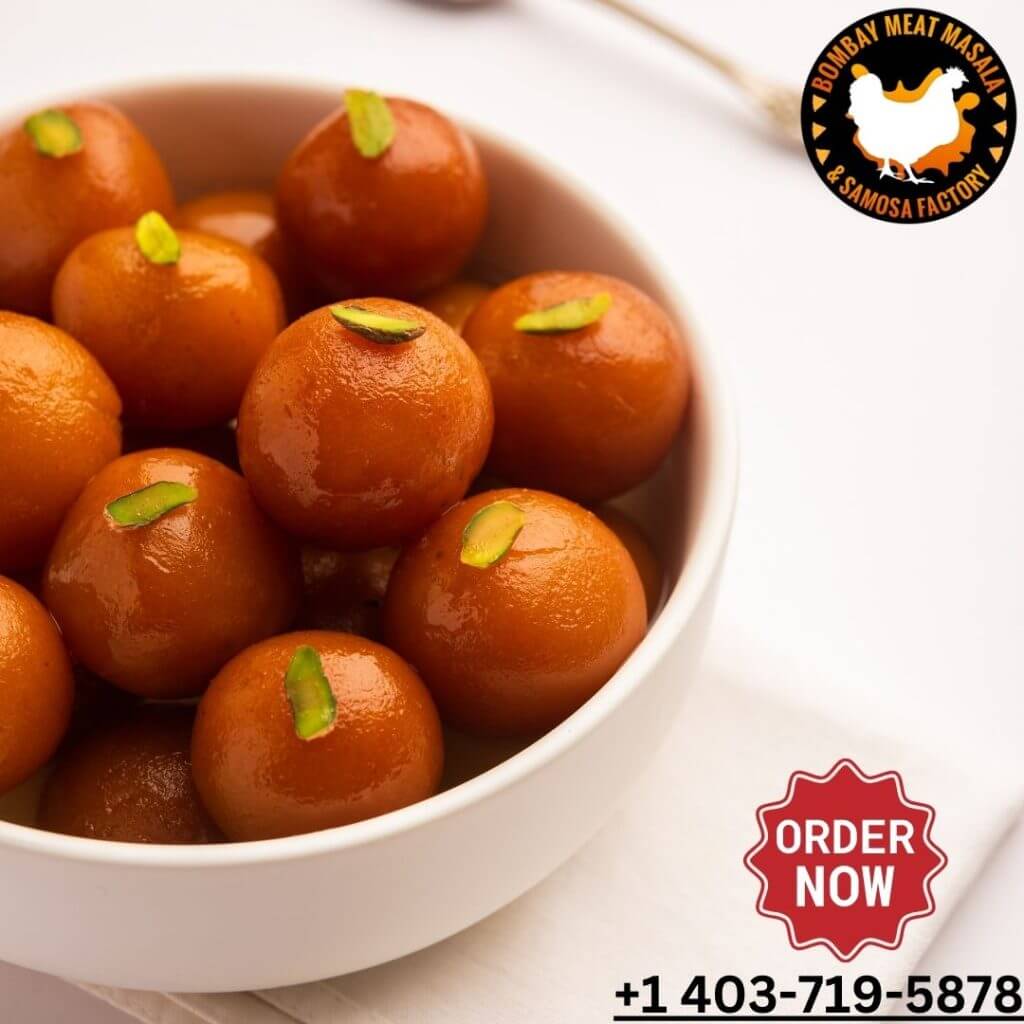Several facts can be discussed about eating, gifting and serving sweets during Indian culture and traditional celebrations. Indian cultural celebrations define a rich heritage of spirituality and culinary delights.
Bombay Meat Masala prepares Ras Malai, Sooji Halwa and other yummy sweets for its customers. Our best Indian sweets in Calgary let you enjoy truly unforgettable tastes. Among the many aspects that define its rich heritage, Indian sweets hold a special place. Famous in India as ‘Mithai’ Sweets are integral parts of the celebrations both cultural and religious. Let’s explore the importance of Indian Sweets in cultural and religious celebrations.
1. Cultural Significance
In India, sweets symbolize joy. Offering sweets during festivals and celebrations is a customary gesture that signifies warmth and goodwill. The preparation and sharing of sweets during celebrations foster bonds within families and communities. Eating it embodies the spirit of togetherness and festivity.
Each region of India displays its unique collection of sweets, reflecting local ingredients, culinary techniques, and cultural influences. From the syrupy goodness of Garam Gajrella to the aromatic richness of Sooji Halwa, every sweet carries a story of its origin and evolution, intricately woven into the cultural fabric of its people.
2. Religious Rituals
Beyond their mouth-watering taste, Indian Sweets play an important role in religious rituals and ceremonies. Festivals like Diwali, Raksha Bandhan and others provide opportunities for Indians to offer freshly prepared sweets for prayers and rituals. ‘Garam Gulab Jamun’ garnished with coconut are offered to deities as part of prayer during Diwali, Navratri and other festivals.
Devotees make arrangements and prepare these yummy sweets like Garam Gajrella to offer to their god. The act of offering sweets in temples and to guests is considered a gesture of devotion and respect.
3. Evolution and Adaptation
Following a tradition of offering sweets during cultural and religious celebrations for years, Indian people evolved Indian sweets over time. They have added new ingredients to bring new tastes to changing lifestyles. Modern variations of traditional sweets adopted nowadays by sweets lovers cater to every palate while retaining their essence.
The evolution of sugar-free versions of classic sweets caters to health-conscious individuals attending celebrations. Indians residing outside the country have adopted a habit of preparing and sharing traditional sweets during festivals and special occasions promoting their culinary heritage across generations.
4. Preserving Culinary Heritage
Offering and eating sweets during celebrations helps in maintaining a cultural heritage passed down through families. Sweet recipes handed down from grandmothers to mothers and daughters let you cherish taste with stories and memories associated with each sweet.
Efforts to document and preserve these secret traditional recipes ensure that future generations continue to enjoy and appreciate the rich variety of Indian sweets. Culinary schools and workshops play a crucial role in imparting these skills thereby safeguarding this intangible cultural heritage for posterity.
Final Words!
The best Indian sweets in Calgary are much more than delectable treats. They are symbols of festivity and faith. Their mouth-watering taste and culinary pleasure, embody the spirit of unity, celebration, and reverence.

